Notes
Powerful Images from the Senate Armed Services "Military Sexual Assault" Hearing
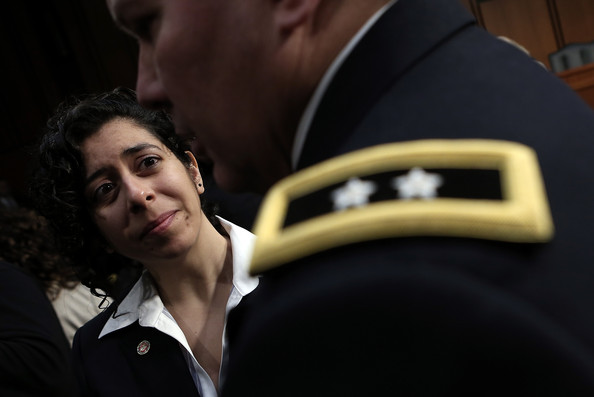
The Pentagon estimates that roughly 19,000 service members are assaulted annually. A small fraction of the incidents are reported because most victims fear retaliation or ruined careers, and only about 10 percent of those cases go trial. One in three convicted military sex offenders remain in the service….
— from Veterans Testify on Rapes and Scant Hope of Justice (NYT)
What a landmark day, and what a powerful group of photos from the Senate Armed Services Committee’s Personnel Subcommittee hearing yesterday on Military Sexual Assault. The Subcommittee is chaired by Sen. Kirsten Gillibrand who has pushed to expose the military’s shameful enabling and coverup of sexual abuse. I recommend the NYT story linked to above. We share our thoughts on a number of the images from the encounter.
In the lead image, we see executive director and co-founder of the Service Women’s Action Network, Anu Bhagwati, herself a a victim of military sexual assault, talking with Maj. Gen. Gary Patton, director of the Sexual Assault Prevention and Response Office. What’s so powerful is the way the photo aligns Anu’s gaze as much or more with Patton’s shoulder, as if she were looking to the insignia for answers and also to the military, by way of the uniform, to account for itself as an institution.
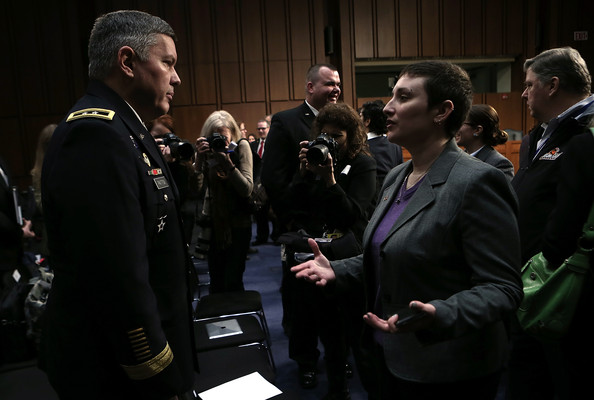
In this second photo with Patton and Rebekah Havrilla, a former sergeant who also testified about her sexual assault, what is poignant to me, beside Rebekah so clearly expressing herself, is that the scene is captured by two women newswire photographers. I find a tacit sense of solidarity in this — as if an echo, too, of the seven women now sitting on the Armed Services Committee, and the overall sense that things, however slowly, are shifting.
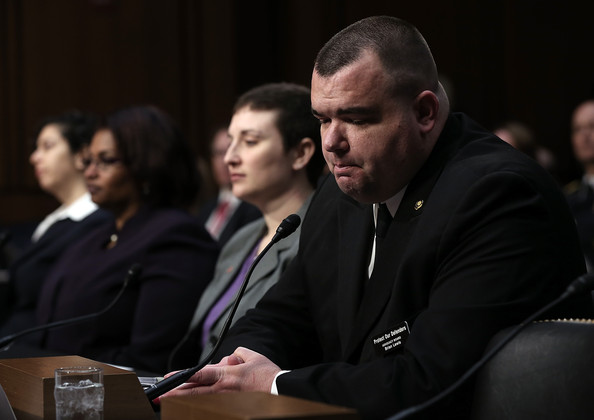
In this photo, the four courageous former soldiers who testified about their abuse, Bhagwati; former Army specialist BriGette McCoy; former Army sergeant Rebekah Havrilla; and former Navy petty officer third class, Brian Lewis, sit with their thoughts. It’s striking to witness such an internal and quiet moment while these men and women present themselves as witnesses to a nation.
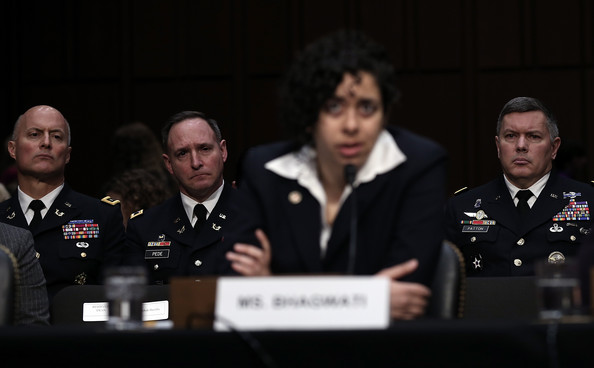
In a stunning piece of symbolism, we see military brass witnessing Bhagwati’s testimony. I don’t know who the officer is second from left but I do appreciate his demonstration of emotional pain. Far left is Lt. Gen. Dana Chipman, Judge Advocate General of the United States Army. During the hearing, Gillibrand ripped the “convening authority” structure of the military in which commanders are charged with policing their own ranks.
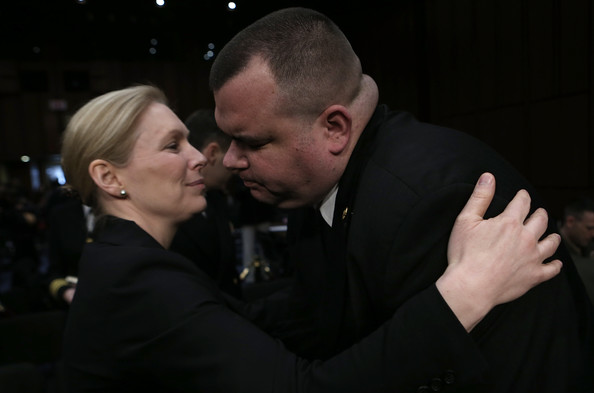
In a particularly tender moment, not just unusual for a Congressional hearing but novel for the combination of leadership and nurturing exhibited by the Senator, we see Gillibrand embracing Officer Lewis. The photo simultaneously contravenes the physicality of his abuse and demonstrates the kind of genuine intimacy perverted by Lewis’s military superiors.
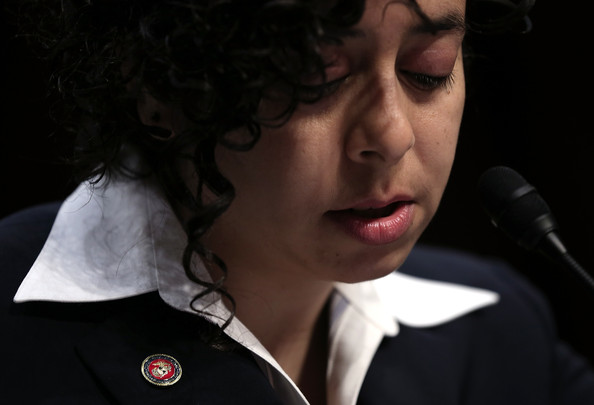
Finally, it takes a confident photographer to put forth a portrait as intimate as this one when the intimate violation of these service people is the subject at hand. Getty photographer Win McNamee artfully negotiates that territory, however, in the form of this close visual dialogue between Bhagwati’s sensitive words and the identity and nominal allegiance embodied by her service pin.
Here’s the fuller photo edit at Zimbio.
(photos: Win McNamee/Getty Images)
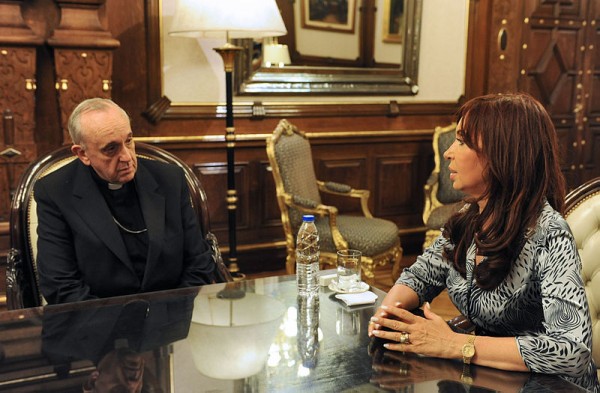

Reactions
Comments Powered by Disqus